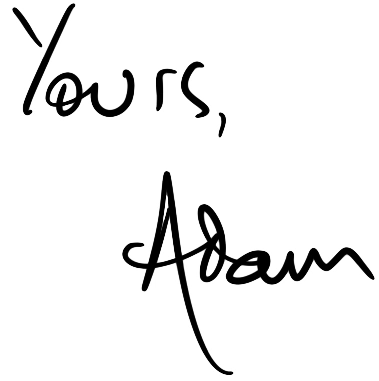One Little Thing to Make Your Next Week Better
And Some Other Goodies Too
A warm welcome to the hundreds who’ve signed up recently.
One Little Thing to Make Your Next Week Better
Perhaps the most important approach of those who thrive despite having too much to do and too little time is to appreciate that it’s not about time management. Time’s going to do its own thing, as it has been doing for 14 billion years, and there’s nothing you can do about that. In the best book there is on time management, Four Thousand Weeks, Oliver Burkeman writes that time “is like an obstreperous toddler: the more you struggle to control it, to make it conform to your agenda, the further it slips from your control.”
What you can manage is yourself—and, in particular, your energy. (And your expectations of yourself, as Oliver Burkeman considers in his wonderful, newest book Meditations for Mortals.)
As you’ll know if you’ve been reading since the early days, a key Great Work strategy is to recognize that most of us are working hard enough that we will—wonderfully—achieve more, better, by working a little less hard. In other words, go a little easier on yourself, give yourself a break, and you’ll get more done, and enjoy it more, too.
I’ve written more about this, and the evidence to support it, here …
… but, this time, I want to offer you a challenge. In the seven days ahead of you, can you build in some substantial rest that you wouldn’t otherwise have had—and then pay attention to how you feel at the end, and to how effective you’ve been at whatever your priorities are right now?
Here are three versions:
The bronze challenge: schedule just two hours of true rest when you wouldn’t otherwise have had it.
The silver challenge: two three-hour rest sessions.
The gold challenge: a whole day of rest (a sabbath), with only enjoyable things planned—and two or three hours somewhere else in the week, too.
Plan when you’re going to do it—and what you’ll do. Rest means rest: not scrolling on your phone, not doing a chore that’s been hanging over you, but doing something purely for the pleasure of doing it: reading fiction, going for a walk, listening to music, meeting up with an old friend, or whatever you find most restful.1
Appealing? Could you do it? Even just the bronze challenge?
I’d be willing to bet that, if you do this, you’ll be surprised by how much better the week feels, and how much more you get done. I’m pretty sure it’ll be so positive that you’ll want to think about how you can make planned rest a regular thing. Report back!
Substack Chat
Interested in discussing this? Substack, the platform that hosts Great Work, has a chat feature for readers and writers to discuss things. I haven’t yet used it—and many Great Work readers are email-only, which is fine. But, if you’re interested in a conversation about fitting more rest into your week, or anything else Great Work, head over to the chat I’ve just created: I’d love to chew this over with you. Website or Substack app.
Further Reading
On this topic of getting more done by working less hard, I’m not going to stop recommending Alex Soojung-Kim Pang’s book Rest (Penguin Life, 2017)—a book that truly changed my life.
TV Show Recommendation
A variation of my occasional fiction recommendations: a four-episode British drama called Adolescence. A thirteen-year-old boy is arrested for murdering a girl in his school. Each episode approaches the story from a different angle and point in time and, astonishingly, is filmed in a single, hour-long take. It’s thoughtful, gritty, troubling, and superbly acted. Whether you’re a teacher or a parent, are involved in criminal justice or just care about the world, it’s hard to watch without mulling it over for a long time after you’ve watched it. Netflix only, alas. As my Canadian partner discovered, if your ear’s not attuned to Liverpudlian accents, you may want to switch on subtitles.
Next email (perhaps): a new approach to imposter feelings; winter; career choice.
PS Remember, you can reply to any of these emails. I love hearing from other Great Workers, and I always respond.
If you find anything helpful in these free emails, it would mean a huge amount to me if you could recommend them to anyone—in any walk of life—who you think might like them. You can share this email …
… or encourage people to sign up …
… or send this link to people, or post it on social media: www.adamsandell.com/newsletter. Thank you!
In one large international survey the top five things people said they found most restful were, in this order: reading; sleeping or napping; looking at, or being in, a natural environment; spending time alone; and listening to music.







Thanks for this Adam. I’m guilty of taking next to no rest, even though I know I should. It will have to be scheduled! I enjoy your work, keep it up
Thank you for this challenge Adam. Like many, I find doing nothing or resting very difficult in a life filled with so many compelling demands for attention but challenge accepted!